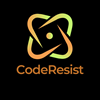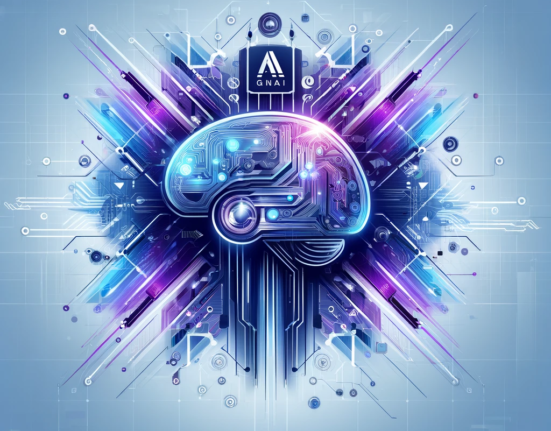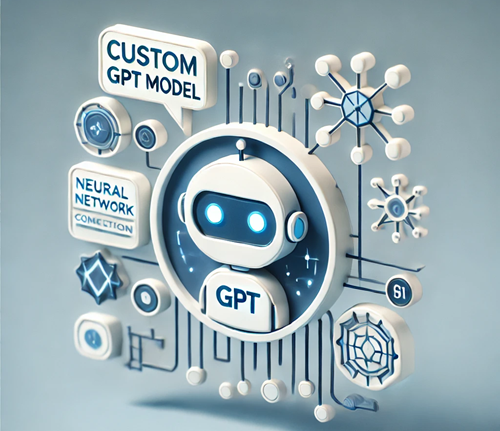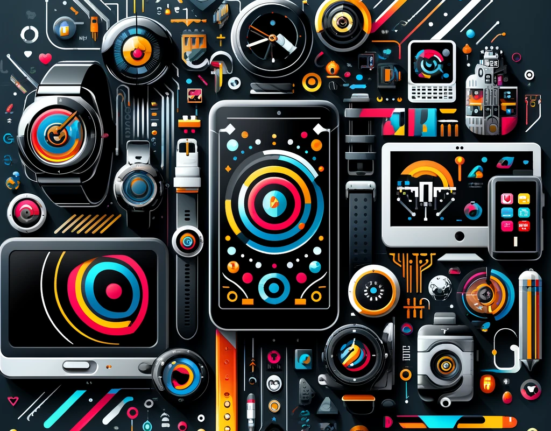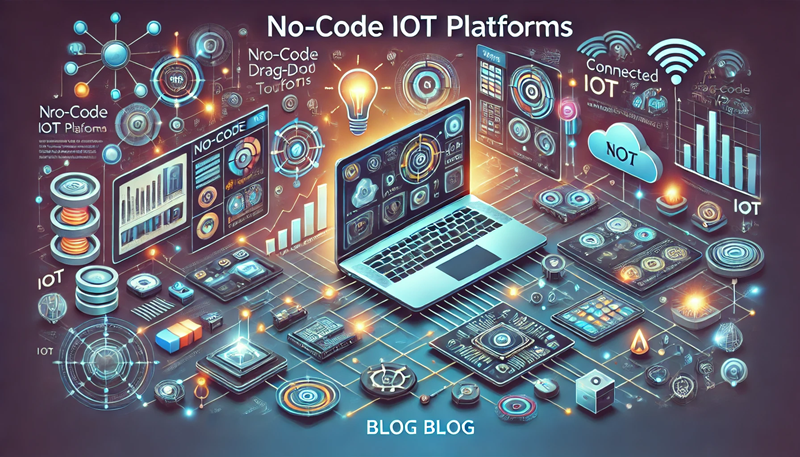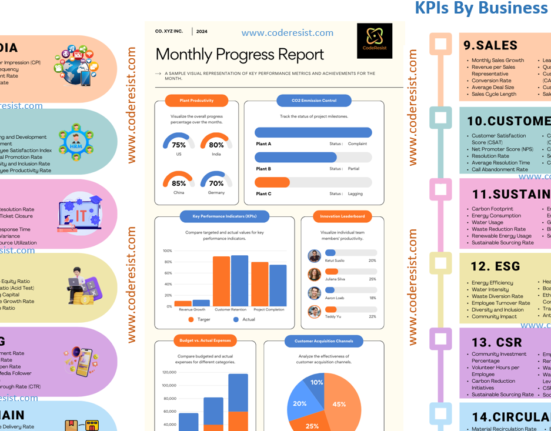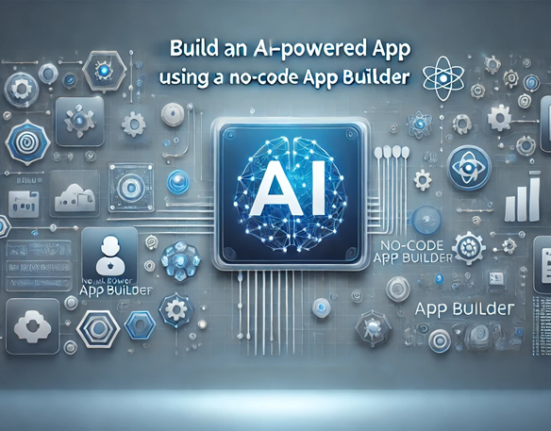The rise of the Internet of Things (IoT) has transformed how businesses manage operations, improve efficiency, and deliver value to customers. However, developing IoT solutions traditionally required extensive coding knowledge, specialized teams, and significant time investment. Enter no-code IoT platforms—revolutionary tools that enable businesses to create IoT applications without writing a single line of code. This blog explores the 10 best no-code IoT platforms in the market, highlighting their features, benefits, and impact on the IoT landscape.
1. Losant: The Leader in IoT Workflow Automation
Losant stands out as a powerful no-code IoT platform that simplifies the development of connected solutions. Its drag-and-drop interface and pre-built workflows make it an excellent choice for businesses across industries.
Key Features
- Intuitive workflow editor for real-time data analysis and automation.
- Seamless integration with cloud services like AWS, Azure, and Google Cloud.
- Extensive support for IoT protocols such as MQTT and CoAP.
Use Case
Manufacturers use Losant to monitor equipment health, predict failures, and reduce downtime through IoT-enabled predictive maintenance.
2. ThingsBoard: Open-Source Excellence
ThingsBoard is an open-source no-code IoT platform known for its flexibility and scalability. It’s ideal for businesses seeking customizable IoT solutions.
Key Features
- Real-time telemetry data collection and visualization.
- Rule engine for event-based processing.
- Compatibility with popular databases and cloud services.
Why It’s Popular
ThingsBoard’s open-source nature allows developers to tailor the platform to specific requirements, making it a cost-effective option for startups and small businesses.
3. Ubidots: IoT Made Simple
Ubidots focuses on empowering businesses with simple tools to build IoT dashboards and applications. Its user-friendly interface and affordability make it accessible for non-technical users.
Key Features
- Drag-and-drop dashboard creation for real-time monitoring.
- RESTful API for seamless device integration.
- White-labeling options for branding and customization.
Ideal For
Educational institutions, healthcare providers, and small businesses leverage Ubidots for monitoring systems and creating IoT applications.
4. Blynk: Perfect for IoT Prototyping
Blynk is a no-code platform tailored for IoT prototyping and small-scale deployments. It’s widely used by developers and hobbyists looking to create IoT projects quickly.
Key Features
- Pre-designed widgets for dashboards and device control.
- Support for popular IoT hardware like Arduino, ESP8266, and Raspberry Pi.
- Easy-to-use mobile app for remote management.
Business Applications
Blynk enables smart home developers to create intuitive apps for controlling devices like lights, thermostats, and cameras.
5. Particle: IoT Connectivity Simplified
Particle is a robust no-code platform that emphasizes secure IoT connectivity and device management. It’s ideal for businesses looking to deploy large-scale IoT networks.
Key Features
- Comprehensive device management and monitoring tools.
- Built-in security features, including end-to-end encryption.
- Cloud integration for real-time data processing.
Use Case
Enterprises in the energy sector use Particle to monitor power grids, optimize energy distribution, and reduce waste.
6. Google Cloud IoT Core: Enterprise-Grade IoT Solutions
Google Cloud IoT Core is a no-code platform designed for large-scale IoT implementations. It integrates seamlessly with Google’s cloud services to provide end-to-end IoT solutions.
Key Features
- Real-time analytics powered by Google BigQuery.
- Device registry for managing large fleets of IoT devices.
- Built-in AI and machine learning capabilities.
Business Impact
Organizations leverage Google Cloud IoT Core to build smart city infrastructure, including traffic management systems and environmental monitoring solutions.
7. Azure IoT Central: Simplified IoT at Scale
Azure IoT Central by Microsoft offers a no-code platform that simplifies IoT app development for enterprises. Its scalability and security make it a preferred choice for global organizations.
Key Features
- Pre-built templates for common IoT scenarios.
- Advanced analytics and AI integration for insights.
- Compliance with global security standards like ISO 27001.
Real-World Example
Retail companies use Azure IoT Central to optimize inventory management with real-time tracking and automated replenishment systems.
8. Adafruit IO: A No-Code Platform for Makers
Adafruit IO is a beginner-friendly IoT platform aimed at hobbyists, educators, and small-scale developers. Its simplicity and affordability make it a go-to for learning and prototyping.
Key Features
- Easy-to-use dashboard with drag-and-drop widgets.
- Integration with Adafruit’s extensive range of IoT hardware.
- Free tier for small projects.
Why It Stands Out
Adafruit IO is perfect for teaching IoT concepts in schools and creating fun, small-scale projects.
9. Kaa IoT: Enterprise-Grade Flexibility
Kaa IoT is an open-source no-code platform built for creating scalable IoT applications. Its modular design makes it suitable for various industries, from healthcare to manufacturing.
Key Features
- Modular architecture for custom application development.
- Built-in tools for device management and analytics.
- Support for multiple cloud providers and IoT protocols.
Enterprise Use
Hospitals use Kaa IoT to monitor medical equipment performance and ensure optimal patient care through connected devices.
10. Samsung Artik: Secure and Smart IoT Development
Samsung Artik combines powerful no-code tools with strong security features, enabling businesses to create IoT solutions for industrial and consumer applications.
Key Features
- High-level security with device authentication and encryption.
- Integration with Samsung’s ecosystem of IoT devices.
- Scalable cloud-based architecture.
Best For
Samsung Artik is widely used in the smart appliance industry to develop apps for connected refrigerators, washing machines, and more.
Choosing the Right No-Code IoT Platform
No-code IoT platforms are revolutionizing how businesses approach IoT app development by reducing complexity, lowering costs, and accelerating deployment. Each platform on this list offers unique features and capabilities, catering to diverse needs across industries.
When selecting a platform, consider factors like scalability, device compatibility, security, and ease of use. By choosing the right no-code IoT platform, your business can unlock the full potential of IoT technology, driving innovation and growth in today’s connected world.
